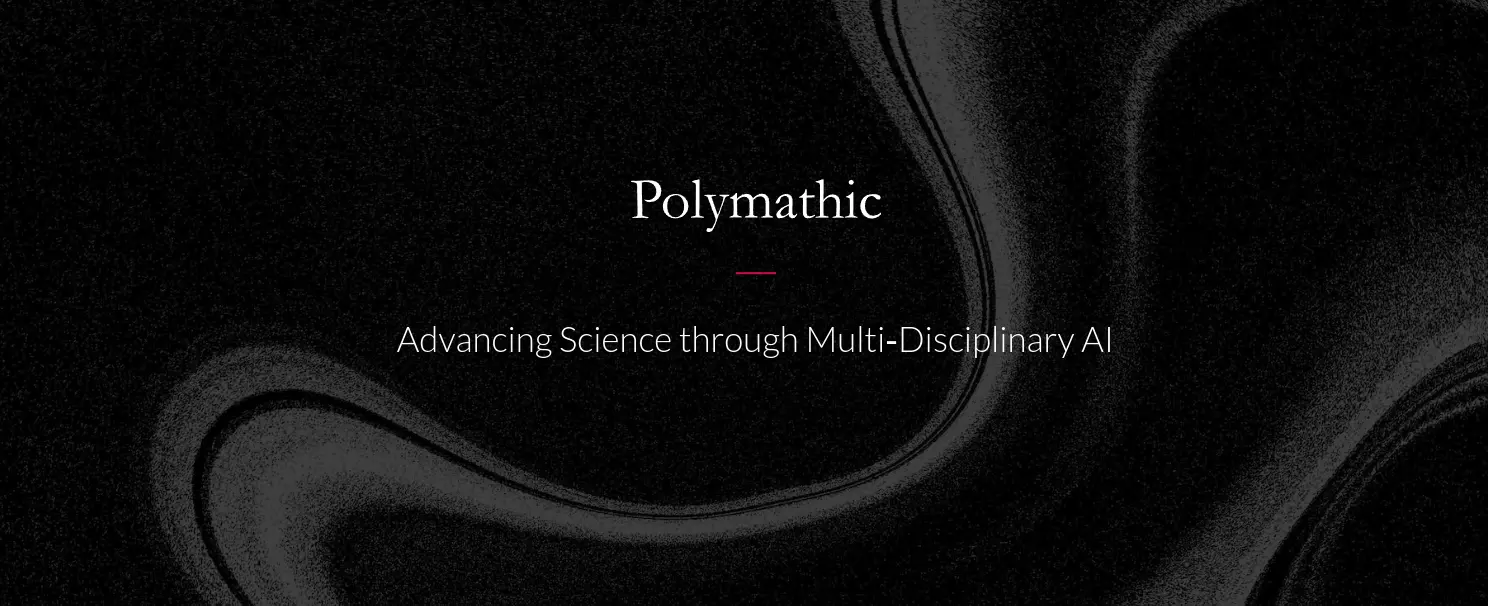Table of Contents
The Future of Scientific Modeling, Polymatic AI is a new ChatGPT like AI tool for scientific discovery. In a groundbreaking endeavor, an international coalition of scientists has embarked on a journey to harness the immense potential of AI, similar to ChatGPT, to revolutionize scientific discovery. This groundbreaking initiative, known as Polymathic AI, represents a seismic shift in how we explore and model the natural world.
“This will completely change how people use AI and machine learning in science,” said Polymathic AI principal investigator Shirley Ho, a group leader at the Flatiron Institute’s Center for Computational Astrophysics in New York City, US.
The Essence of Polymathic AI

Polymathic AI distinguishes itself by its unique approach. Unlike ChatGPT, which deals primarily with words and sentences, Polymathic AI is designed to learn from numerical data and physics simulations drawn from diverse scientific domains. This dynamic fusion enables scientists to model an extensive spectrum of phenomena, from the colossal grandeur of supergiant stars to the delicate intricacies of Earth’s climate.
The idea behind Polymathic AI “is similar to how it’s easier to learn a new language when you already know five languages,” said Shirley Ho
Shirley Ho’s Vision
Shirley Ho, the visionary driving Polymathic AI and a leading figure at the Flatiron Institute’s Center for Computational Astrophysics in New York City, believes that this initiative will redefine the application of AI and machine learning in the scientific realm. Ho envisions Polymathic AI as a bridge, simplifying the comprehension of complex scientific languages, much like effortlessly learning a new language when one is already fluent in five.
Unearthing Hidden Connections in this ChatGPT like AI tool
One of the remarkable attributes of Polymathic AI is its capacity to reveal concealed connections and commonalities across diverse scientific fields. Co-investigator Siavash Golkar, a guest researcher at the Flatiron Institute’s Center for Computational Astrophysics, underscores the potential of Polymathic AI to shed light on hitherto unnoticed interrelationships.
The Polymathic AI team is a powerhouse of expertise, boasting specialists in diverse fields such as physics, astrophysics, mathematics, artificial intelligence, and neuroscience. This formidable assembly of multidisciplinary talent forms the backbone of Polymathic AI’s mission.
Polymathic AI’s project is poised to revolutionize scientific discovery by harnessing insights from various domains, starting with physics and astrophysics and extending its reach into realms like chemistry and genomics, as envisioned by its creators. This ambitious vision promises to address an extensive spectrum of scientific challenges with a holistic and multifaceted approach.
In contrast to ChatGPT, which faces known limitations regarding accuracy, Polymathic AI charts a different course. It sidesteps many of these pitfalls by recognizing numbers as distinct entities, not mere characters indistinguishable from letters and punctuation. Furthermore, its training data draws from real scientific datasets, capturing the underlying physics of the cosmos. This foundation ensures that Polymathic AI is not confined by the constraints of conventional text-based models, opening doors to more precise and robust scientific insights.
Polymathic AI promises to redefine the very essence of scientific discovery. With its ability to bridge gaps, uncover hidden connections, and transcend traditional boundaries, it’s a quantum leap toward unraveling the profound mysteries of our universe.
In conclusion, the emergence of Polymathic AI marks a quantum leap in the realm of scientific discovery. This groundbreaking initiative, akin to the technological prowess of a ChatGPT-like AI tool, is set to transform the way we harness artificial intelligence and machine learning for scientific exploration.
As we embark on this exciting journey with Polymathic AI, we anticipate not only a deeper understanding of our universe but also innovative solutions to complex scientific problems. With the language of science as its canvas, Polymathic AI is set to paint a brighter future for scientific discovery.





